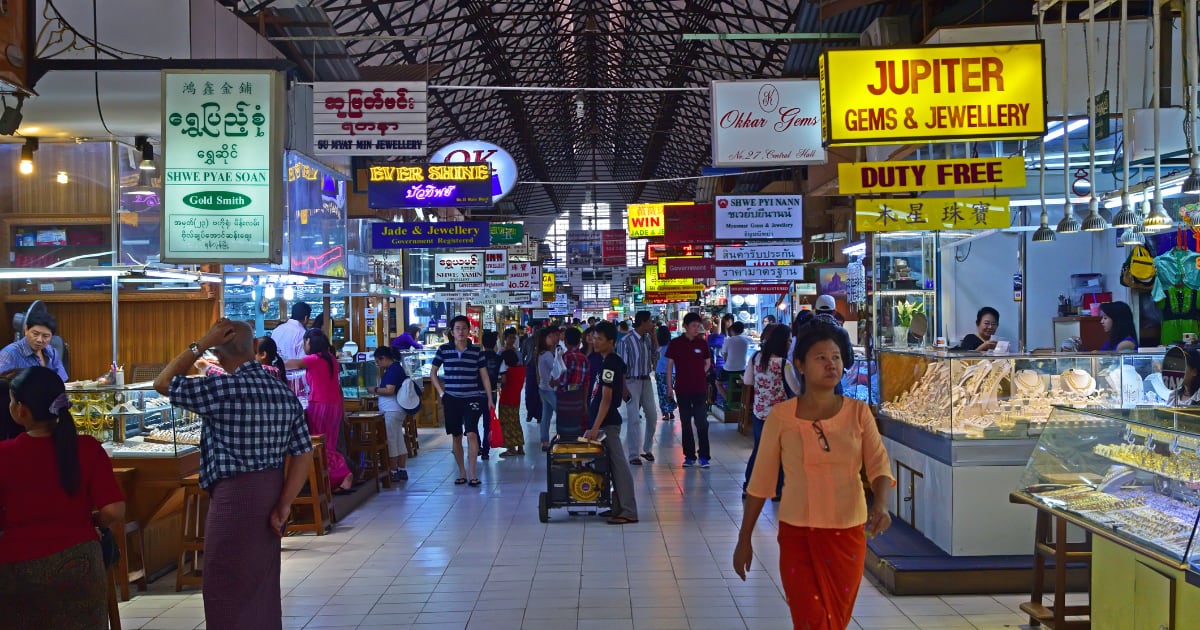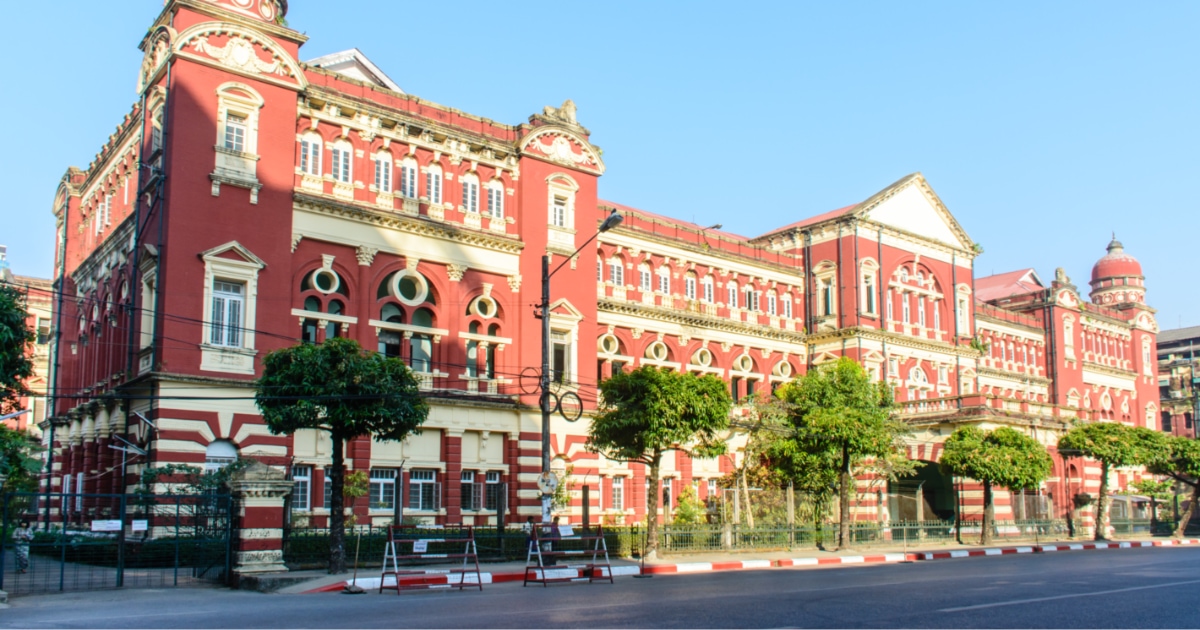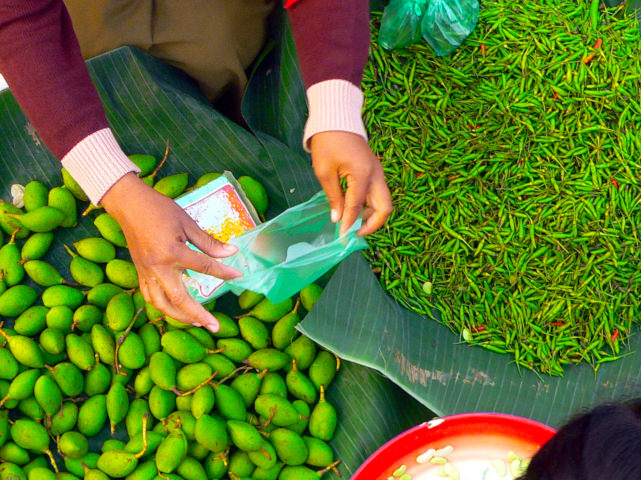
45 foreign investments permitted by MIC this FY
According to the Directorate of Investment and Company Administration (DICA), more than US$3.767 billion of foreign direct investments were made by 45 enterprises including capital increases of investments in the Thilawa Special Economic Zone over the past ten months of the current financial year (2020-2021). The top sources of investments came from the enterprises listed from the UK, Japan, and Singapore. In addition, enterprises from Brunei, China, Thailand, India, Malaysia, Republic of Korea, Vietnam, the Marshall Island, Samoa, Hong Kong, and Taiwan made investments this year.
The Myanmar Investment Commission (MIC), ensuring to approve responsible businesses, permitted and endorsed 45 foreign enterprises in the manufacturing sector, electricity sector, livestock and fisheries sector, services sector, agriculture sector, industrial estate sector, and the hotel and tourism sector this year.
https://www.gnlm.com.mm/mic-gives-nod-to-45-foreign-proposals-this-fy
19 Aug 2021
Export of natural gas exceeds US$2 billion
Natural gas is one of the major exports in Myanmar, it has accounted for about six percent of the country’s total export earnings this first half of this financial year. According to the statement by the Ministry of Electricity and Energy, there are a total of 104 blocks that are 53 onshore blocks and 51 offshore blocks. Among them, foreign investments are made on 25 onshore blocks and 31 offshore blocks.
The natural gas extracted from the projects in Rakhine State and the Taninthayi Region is exported to China and Thailand. The Ministry of Commerce’s data indicates that exports of natural gas remained at $3.5 billion in the 2019-2020 FY, $3.9 billion in the 2018-2019 FY, $3.5 billion in the 2017-2018 FY, $3.116 billion in the 2016-2017 FY, and $3.445 billion in the 2015-2016 FY respectively.
https://www.gnlm.com.mm/natural-gas-export-tops-us2-bln-in-eight-months
17 Aug 2021
Endorsements of YRIC for ten proposals
The Myanmar Investment Law grants powers to the relevant region and state investment committees to permit local and foreign proposals. In the last ten months of the current financial year 2020-2021, eight foreign companies and two joint venture companies as well as two local companies have been endorsed by the Yangon Region Investment Committee (YRIC) in the manufacturing sector. Their main business activities are manufacturing of bags, footwear, underwear, and garments on a Cutting, Making, and Packing (CMP) basis, manufacturing of construction materials, production and sales of aluminium, grinding and manufacturing of pulses and beans, and production and distribution of fish sauce.
The manufacturing industry is the most attractive industry for foreign investments in the Yangon Region. To date, China, Singapore, Japan, Hong Kong, the Republic of Korea, Vietnam, India, Taiwan, Malaysia, the British Virgin Islands, and Seychelles are entering the region in order to make investments.
https://www.gnlm.com.mm/yric-endorses-19-mln-worth-ten-proposals-so-far
15 Aug 2021
A drop of $776 in mineral exports during the COVID-19 pandemic
Even though permits for mining blocks were suspended in 2016, local and foreign investors are now permitted to operate in the mining industry due to the enactment of the new Myanmar Mines Law, which came into force in 2018 at the time of the issuance of the rules. According to the Ministry of Natural Resources and Environmental Conservation, they have permitted over 1250 small, medium, and large scale mineral blocks for excavation.
The data from the Ministry of Commerce shows that there was a sharp increase in the mineral exports last financial year (2019-2020), reaching $1.87 billion. In the current year, the value of mineral exports has decreased drastically to US$776.737 million since 9 July 2021 due to the coronavirus related disruptions.
https://www.gnlm.com.mm/myanmar-mineral-exports-slump-to-776-mln-amid-covid-19-pandemic
15 Aug 2021
No plan for Kirin Holdings to leave Myanmar despite losses
Myanmar Brewery Limited is a joint venture company of which 51 percent of shares are subscribed by Japanese drinks giant Kirin with the rest of the shares subscribed by companies owned by Myanma Economic Holdings, which has a relationship with the Myanmar military. With sales this half year having dropped 28% to K152 billion ($92.3 million) compared with last year, as well as being forced to scrap its beer partnership with a joint venture linked to Myanmar due to pressure, Kirin has no plans to exit Myanmar according to its senior executive officer. He said that they are not considering leaving Myanmar in the current situation, but will still continue negotiations to terminate the joint-venture with Myanma Economic Holdings. The discussion is currently halted by the COVID-19 pandemic. In the first half of this year, Kirin’s beer production businesses in Myanmar booked an impairment loss of over 21.4 billion yen ($193 million).
https://mmbiztoday.com/kirin-writes-off-193-million-but-not-planning-to-leave-myanmar
12 Aug 2021
Live cattle traded by Chinese importers on black market
Despite the suspension of cross-border trade due to the COVID-19 outbreak, Chinese traders are purchasing live cattle on the black market across the border between Myanmar and China according to the Chairman of Mandalay Region Cattle Exporters Association. He said that there is an illegal market around the Myitkyina and Waingmaw areas, with the live-cattle business to China’s border booming. Myanmar’s live cattle export relies on Chinese consumers due to the good price although other external markets exist such as in Laos, Thailand, Malaysia, and Bangladesh.
At present, the black market live-cattle trade has become stronger due to a halt in the legitimate market since late 2020. In order for the trade to be legal, China permits live cattle imports only after ensuring the cattle is free from 20 diseases including Foot and Mouth Disease, along with vaccination certificates, health certificates, and farming registration certificates. However, these requirements are ignored on the black market.
Each permit valid for three months can be issued by the Ministry of Commerce to each company for exporting 100 cattle. If the cattle isn’t sold by the companies within the specified three months period, legal action can be taken.
https://www.gnlm.com.mm/chinese-importers-daily-trade-2000-cattle-on-black-market
12 Aug 2021
China’s decision to fund development projects in Myanmar
According to the Myanmar Foreign Ministry, China will transfer more than $6 million to Myanmar’s government for 21 development projects in order to develop cooperation between China and Myanmar.
The Ministry said that the funds were to be transferred from China for projects within the Mekong-Lancang Cooperation framework. The projects include animal vaccines, culture, agriculture, science, tourism, and disaster prevention. The Chinese Embassy in Myanmar confirmed that China and Myanmar signed an agreement in the second week of August. China has a significant influence on Myanmar, having invested a large amount in the oil and gas industry.
12 Aug 2021
11 Aug 2021
Singapore’s investments in Myanmar this FY
Between October 2020 and June 2021, Singapore is the second largest investor in Myanmar after thirteen Singapore companies brought US$428 million into Myanmar, according to the data released by the Directorate of Investment and Company Administration (DICA). The main industries Singapore invested in were urban development, real estate, power, and manufacturing.
Singapore has remained as the largest foreign investor in Myanmar since 2012 as well as the second largest investor in the Thilawa Special Economic Zone after Japan.
https://www.gnlm.com.mm/myanmar-attracts-over-428-mln-of-fdi-from-singapore-this-fy
07 Aug 2021
Central Bank’s restriction on the appointment of foreigners in local banks
On 2 August 2021, the Central Bank of Myanmar (CBM) issued a statement which mentions the stipulations to be followed by local banks on the appointment of foreigners. According to the statement, foreigners are not allowed to be chair or vice-chair in local banks.
Additionally, local private banks have their own responsibilities and accountabilities in hiring foreigners subject to the conditions stipulated by the CBM. In order to continue banking operations without any delay, banks must report the appointment of foreigners to the CBM 30 days prior to their confirmed employment.
Large-scale banks can appoint no more than 25 foreign employees while a mid-sized bank can’t appoint more than 15 foreigners. As for small banks, they can appoint no more than eight foreigners. If possible, the statement encourages appointing Myanmar citizens instead of foreigners.
The personal details of appointed foreign employees must be sent to the CBM as well. More importantly, the banks have to take responsibility for foreign employees in complying with local existing laws. If they have infringed upon the law or have lacked proper conduct, the banks must send reports about it to the CBM.
04 Aug 2021
This newsletter is for information purposes only
Its contents do not constitute legal advice and it should not be regarded as a substitute for detailed advice in individual cases. Transmission of this information is not intended to create and receipt does not constitute a lawyer-client relationship between Charltons and the user or browser. Charltons is not responsible for any third party content which can be accessed through the website.
If you do not wish to receive this newsletter please let us know by emailing us at enquiries.myanmar@charltonslaw.com








